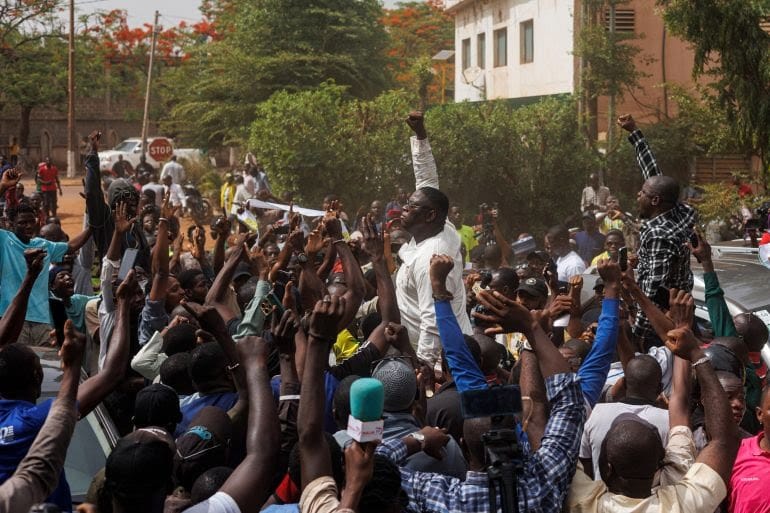Mali’s military-led administration is facing renewed public pressure after suspending all political activity this week, a decision critics view as a move to stifle dissent amid growing discontent over insecurity and economic hardship.
The government’s announcement on Wednesday ordered an indefinite halt to the operations of political parties and related groups, citing the need to maintain public order. The timing of the decision—just days before protests were planned in Bamako and Segou—has raised concerns among civil society and opposition figures.
The current authorities, who assumed power following military takeovers in 2020 and 2021, have come under criticism for delaying a return to civilian rule. Earlier this month, thousands gathered in the capital in response to proposals to extend the transitional leadership’s mandate by five years and to dissolve all political parties.
Although Friday’s demonstrations were postponed, calls for civil disobedience have gained traction online. Efforts to reach officials at the Ministry of Security and Civil Protection for comment went unanswered.
Analysts say the coming days could reveal the depth of public sentiment. “If more people join future demonstrations and are met with force, it may trigger a larger reaction,” said Benedict Manzin, an analyst with risk consultancy Sibylline. “But if turnout is low, it might indicate the population has been silenced.”
Beyond political concerns, many citizens are also expressing frustration over ongoing power cuts, job losses, and the rising cost of living. “It’s a mix of issues—security, social challenges, and economic pressure,” said a Bamako-based security analyst, who requested anonymity. “The situation is becoming increasingly unsustainable.”
Large portions of northern Mali remain outside state control, while violent incidents continue to increase near urban centers. In a high-profile attack last September, armed assailants targeted a police training facility and the airport in Bamako.
Despite promises to improve security, the military leadership has struggled to contain such threats. Authorities across Mali, as well as in neighboring Burkina Faso and Niger, have leaned on anti-colonial rhetoric to justify extended transitional periods. But that narrative is wearing thin.
“People are more concerned with stability and their livelihoods,” Manzin added. “Eventually, the expectations shift from ideology to results.”
Byron Cabrol, senior Africa analyst at Dragonfly, noted that while public demonstrations alone may not lead to immediate change, they can contribute to internal tensions. “A single wave of protests won’t force a shift,” he said, “but it adds to the pressure already building within the leadership.”
As political freedoms narrow and economic challenges deepen, Malians continue to push back—underscoring a growing demand for accountability and a return to democratic governance.



